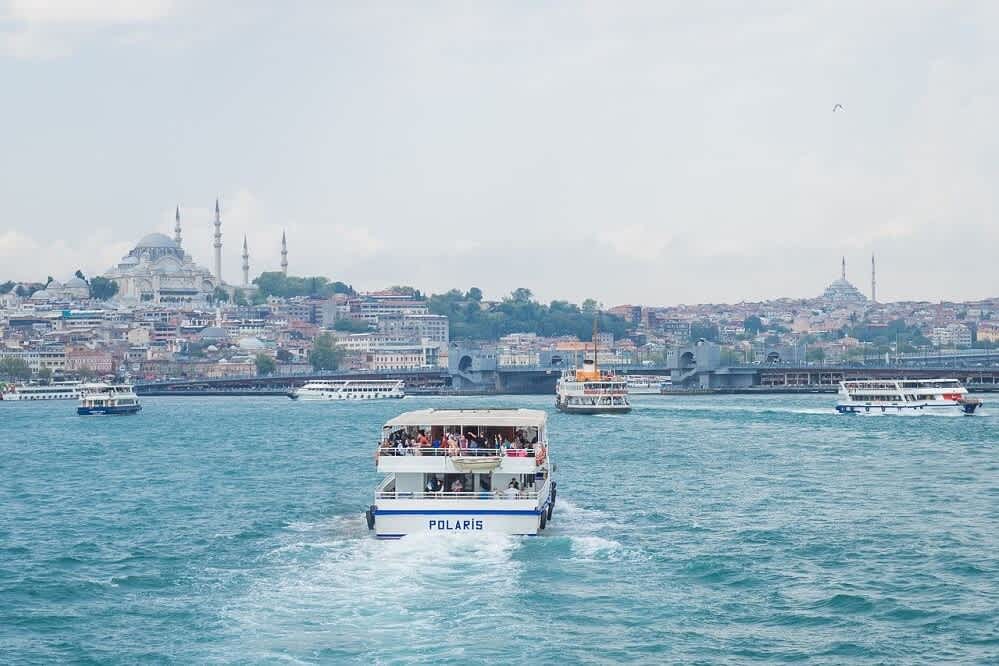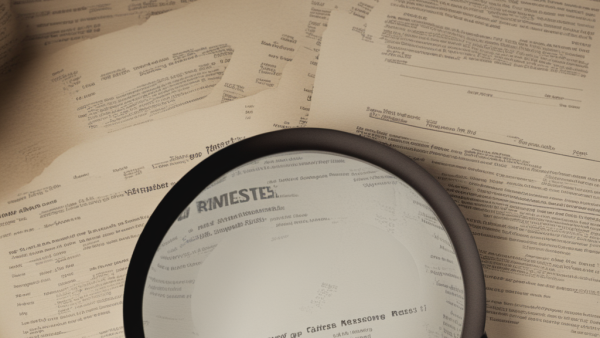
by Sam Franklin | August 02, 2022 | 9 min read
The comprehensive guide to shipping from Turkey to the UK
Get fundedLast updated: September 02, 2022
The United Kingdom signed a Free Trade Agreement (FTA) with Turkey after its departure from the European Union to guarantee the continuation of nearly £20 billion in trade between the two countries. In the financial year 2021, Turkey was the UK’s 18th-largest trading partner.
Turkey occupies a strategically important location in terms of international trade. At the crossroads of Europe, Asia, the Middle East, and Africa, it is an important hub for global trade. The UK imports a variety of goods from Turkey, including electrical equipment, machinery, boilers, iron and steel products, plastics, aluminium, apparel, metals, fruits and nuts, furniture, and ceramic products.
If you are a business looking to ship goods from Turkey to the UK by air, sea, or road, here is all the information you will find helpful.
Table of contents
Shipping from Turkey to the UK
Goods can be shipped from Turkey to the UK via sea, road, and air. Now, Danish ro-ro shipping and logistics group DFDS’ rail freight line between the French Mediterranean port of Sète and the port city of Calais is promising to offer customers a seven-day freight transit time between Turkey and the UK. This line has been operational since May. You can read more about it here.
Air freight services from Turkey to the UK
Air freight, or the shipment of goods through an air carrier, is usually the fastest method of transporting your goods from Turkey to the UK. If you have a small volume shipment, which is valuable, air transport is the most suitable means for you. Air freight also assures quicker delivery compared to sea freight. Air freight between the two countries typically takes about 2-3 days.
The major cargo airports of Turkey are:
Istanbul Airport: The Istanbul Airport is located in the Arnavutköy area on the European side of the city. Most recently, Turkish Cargo, the freight arm of Turkish Airlines, moved its operations to a mega-hub at the new Istanbul Airport from Ataturk airport.
Ankara Esenboğa Airport: The Ankara Esenboğa Airport serves the Turkish capital city of Ankara and is owned and operated by TAV Holdings.
Here are the major cargo airports in the UK:
Heathrow International Airport: Heathrow International Airport is one of the world's busiest international airports, handling over 500,000 tonnes of cargo every year.
East Midlands International: The UK's largest dedicated air cargo operation, East Midlands International, is the most important airport for express freight in the country.
London Stansted Airport: The UK’s third-largest cargo airport, London Stansted Airport handles more than 258,000 tonnes of cargo every year.
Manchester Airport: Manchester Airport, The UK’s third-largest airport and fourth-largest pure freight airport, offers direct access to the UK’s motorway network.
The other important airports for cargo are Belfast International Airport and London Luton Airport.
Sea freight from Turkey to the UK
Sea freight is the most commonly used mode of transport for international shipping. It is relatively cheaper and best suited for large quantities of goods. You should choose sea freight if you have to transport a large volume of goods at affordable prices and are not pressed for time.
Sea freight is used for shipping various goods, including crude oil, industrial goods, condensed gas, raw materials, cars, fruits, food products, and more. Sea freight from port-to-port from Turkey to the UK can take about 8–9 days, whereas door-to-door shipments take about 14–16 days.
Sea freight is divided into two types: FCL and LCL
Full Container Load (FCL): FCL shipping means a customer books the entire space in one or more shipping containers. In FCL freight, the shipper doesn't have to share space with anyone else. These are the three main types of containers for FCL freight:
20ft container: These have an internal capacity of 33 cbm. The cost of shipping for a 20 ft container between Turkey and the UK is approximately £2,066 - £2,285.
40ft container: These have an internal capacity of 66 cbm. The cost of shipping for a 20 ft container is approximately £3,926 - £4,341.
Less-than-Container Load (LCL): LCL shipping refers to grouping shipments into one container. This means that you will have to share space with other shippers. This is suitable when you have a small quantity of goods and you only pay for the volume you use.
Here’s more information on freight shipping.
It can take 9-20 days for goods to reach the UK from Turkey by sea, depending on the origin and destination port. Here is the list of the major cargo ports in Turkey and the UK:
Ports in Turkey:
Port of Ambarli: Located on the northern shores of the Sea of Marmara off the Aegean Sea, the Port of Ambarli serves the greater Istanbul metropolitan area.
Port of Haydarpaşa/Port of Istanbul: Located in Istanbul, the Port of Haydarpaşa is on the shores of the Sea of Marmara between the Aegean and the Black Sea. It is one of Turkey's three major ports, along with Ambarlı and Zeytinburnu ports. It is managed by the General Directorate of Turkish State Railways (TCDD).
Port of Mersin: Located on the north end of the Mersin Bay off the Mediterranean Sea, the Port of Mersin is well connected with Turkey's rail and highway networks. It is also managed by the TCDD.
Port of İzmir: The port is located in İzmir, the third most populous city of Turkey in the western extremity of Anatolia.
Major ports in the UK:
Port of Immingham: Owned and managed by Associated British Ports, the Port of Immingham is the UK's largest port by tonnage. It makes up for one of the UK's major port complexes together with ports on the Humber at Grimsby, Hull, and Goole. London Gateway Port: A deep-sea container port developed by DP World on the north bank of the River Thames, it is close to the UK’s largest consumer markets in London and the southeast. Ports of Tees and Hartlepool: The fifth-largest port in the UK, it supports the movement of international imports and exports throughout the North of the country. Liverpool/Merseyside: Located on both sides of the River Mersey, the port of Liverpool is one of the largest and busiest in the UK.
Road freight from Turkey to the UK
Road freight is also an option if you are looking to ship products from Turkey to the UK. It is a relatively cheaper option compared to air freight and faster compared to sea freight. This is also more convenient if you are looking for door-to-door delivery. Road freight will also save you from organising various means of transport for your products, which you have to for sea or air freight.
FAQs
Do you have to pay customs from Turkey to the UK?
Customs clearance is essential for all kinds of goods entering the UK. Due to the FTA between the UK and Turkey, businesses importing from Turkey need to declare or provide proof that their goods comply with the UK-Turkey preferential rules of origin so they can benefit from preferential tariffs. For all customs procedures, you will need an Economic Operator Registration Identification (EORI) number. The EORI number consists of the prefix GB followed by a company’s VAT number and suffixed with '000. For Northern Ireland, your EORI number will start with XI
If you have an EORI number, but it doesn’t start with GB, you will have to get a fresh one. The company you are importing from will also need to make an export declaration in Turkey and other documentation to export to the UK. If your goods do not meet the rules of origin, you can still import them, but you will not benefit from preferential tariffs under the UK-Turkey FTA. You will instead have to pay the standard tariffs that the UK applies to imports.
You will be charged customs duty on all goods sent from outside the UK if they are excise goods or worth more than £135. There is no customs duty on non-excise goods worth £135 or less. A 2.5% customs duty is charged on gifts above £135 and up to £630. Gifts above £630 and goods above £135 are charged customs duty depending on the type of goods and where they come from. You can read more about tariff rates and import duties on goods shipped from Turkey to the UK here.
What is the cost of shipping services from Turkey to the UK?
The cost of shipping services can vary depending on the shipper or freight forwarder you use and the destination. Container shipping prices have also been fluctuating because of pandemic-led disruptions. Here are the approximate costs you will incur when shipping goods from Turkey to the UK, but they may vary.
Sea freight
20 ft container: It will cost approximately £2,066 - £2,285 to transport a 20 ft container from Istanbul to London.
40 ft container: The cost of shipping a 40 ft container between Istanbul to London is approximately £3,926 - £4,341
Air freight
The contents of a one-bedroom flat can be shipped between Istanbul and Turkey for about £2,558 - £2,829 using air freight.
Road freight
Here is the approximate cost of road freight from Turkey to the UK:
1 Cube: £206
2 Cube: £250
10 Cube: £420
Full truckload (FTL) = £3,184
What can I not ship from Turkey to the UK?
Here is a list of restricted items that cannot be shipped between the two countries:
Self-defence sprays, like CS gas and pepper spray
Endangered animals and plant species
Indecent and obscene materials
Rough diamonds
Illegal drugs
Can I send a package from Turkey to the UK?
Yes. You can send a parcel from most major cities in Turkey like Istanbul, Ankara, Izmir, Bursa, Adana, Antalya, Gaziantep, Mersi, Konya, and Kayseri to the UK. All major logistics and parcel delivery services like Royal Mail, UPS, Eurosender, and FedEx are available for sending packages between Turkey and the UK at competitive prices.
How long does sea freight take from Turkey to the UK?
Sea freight transit between Turkey and the UK for door-to-door delivery is about 14-16 days. Port-to-port shipments take approximately 8-9 days.
Written by

Sam founded his first startup back in 2010 and has since been building startups in the Content Marketing, SEO, eCommerce and SaaS verticals. Sam is a generalist with deep knowledge of lead generation and scaling acquisition and sales.


